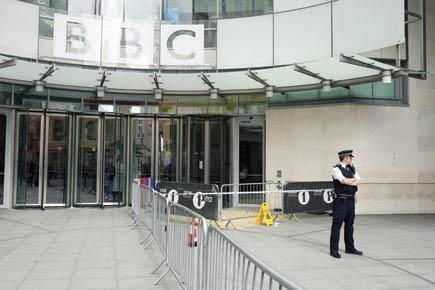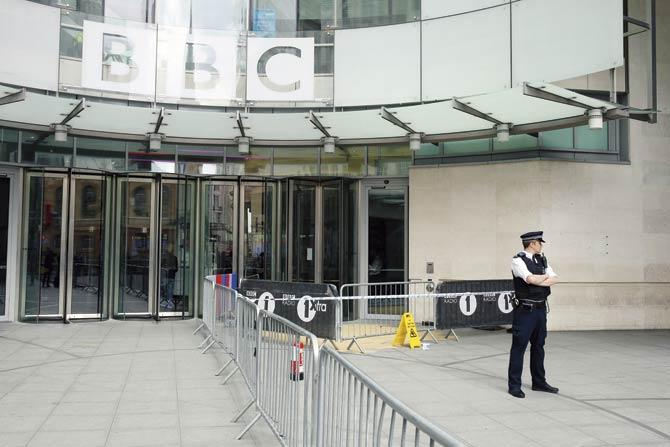It doesn’t matter how robust a democracy is, how free its society is most governments fear, maybe even dislike free media, and more so if it is funded by the taxpayer

 It doesn’t matter how robust a democracy is, how free its society is most governments fear, maybe even dislike free media, and more so if it is funded by the taxpayer. In the US, poorly funded public service broadcasting is facing another round of cuts. In France, Germany and the Netherlands, reorganisation of public broadcasting has tried to make it more ‘like the BBC.’ Funnily enough in the UK, the land of the BBC, there is a strong anti-BBC feeling within the conservative-led government.
It doesn’t matter how robust a democracy is, how free its society is most governments fear, maybe even dislike free media, and more so if it is funded by the taxpayer. In the US, poorly funded public service broadcasting is facing another round of cuts. In France, Germany and the Netherlands, reorganisation of public broadcasting has tried to make it more ‘like the BBC.’ Funnily enough in the UK, the land of the BBC, there is a strong anti-BBC feeling within the conservative-led government.

A policeman keeps watch outside BBC Broadcasting House in London. The BBC occupies a unique place because of its sheer longevity (90 years), quality and influence over the emerging and developed world. And because it is a public broadcaster Pic/Getty Images
That is what it would seem from reading its (very free, voluble and right-leaning) tabloids. For most of this year, there has been severe questioning of everything the BBC does — funding, programmes, hosts, processes. Some of it is justified in the light of scandals such as late Jimmy Saville’s abuse coming out.
In a green paper released last week, consultations were invited on everything to do with the BBC. Its royal charter, the constitutional basis for the BBC, will get over in 2016. The green paper starts a review process leading to a new charter by 2017.
It invites opinions on everything from the BBC’s funding and content to its governance and mission. There is a sense one gets of disapproval, though the Green Paper does laud the BBC intermittently. Like Stewart Lee says while writing a somewhat angsted piece in The Guardian about the composition of the board that will oversee this process “….everyone knows the BBC has been doing something wrong, and must be punished, just as soon as some appropriate crimes can be agreed upon.” Most liberal papers agree on the witch hunt theory.
It would be a pity if it is.
Globally, news is difficult, shrinking, politicised or simply non-existent in several markets. The best news brands are born when there is a not-for-profit body funding them. The BBC is funded by the licence fees paid by British taxpayers. The Guardian is run by The Scott Trust, formed in 1936 to “protect the liberal editorial line of The Guardian from interference by future proprietors.” Al Jazeera is funded by the ruling family of Qatar.
Even within this list, the BBC occupies a unique place because of its sheer longevity (90 years), quality and influence over the emerging and developed world. And because it is a public broadcaster. Note that the BBC is very popular, as an alternate, neutral voice in the US, which is otherwise dominated by right-leaning media. Not just the news part, but its commercial arm, BBC Worldwide too does a good job. It is the largest distributor of television programming outside of the US studios with Sherlock, Wolf Hall, natural history, among a host of other shows.
For someone from India — with its underdeveloped news market, the role the BBC plays seems pretty evident. As the one big, not-for-profit broadcaster, it stands up and does the programming (in news and entertainment) that most private broadcasters would not. And because it does this job well, it forces the private part of the industry to push up standards too. This then helps raise the overall level of debate (in news) and the general quality of programming (in non-news). Think of it as a venture capital investor in developmental programming that pushes up the quality of debate and discussion that media normally attracts.
It re-emphasises, therefore, the role that a good public service broadcaster can play. In India, Prasar Bharati has not been allowed to play that role, because no government has ever let it go free. It is a positive intervention that works beautifully when it works. If the UK government changes too many things in the way the BBC is governed or decides on content, making it bureaucratic and unwieldy, it would be a pity. More importantly, it would be a big blow for democracies like India, where the idea of a free-from-the-state public service broadcaster is just beginning to be discussed.
The writer is a media specialist and author. Follow her on Twitter at https://twitter.com/vanitakohlik
 Subscribe today by clicking the link and stay updated with the latest news!" Click here!
Subscribe today by clicking the link and stay updated with the latest news!" Click here!









